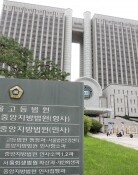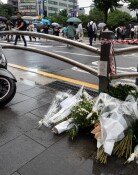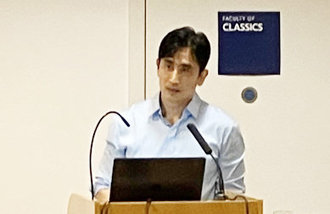Yongcheon Blast: Victims May Face Chemically Caused Repercussions
Yongcheon Blast: Victims May Face Chemically Caused Repercussions
Posted April. 27, 2004 21:14,
The train explosion at the North Korean city of Yongcheon has emitted chemical debris which may cause a long-term aftershock, aid workers said on April 26. The city also may face an outbreak of epidemics because of unclean drinking water and poor living conditions, said Niels Juels, the IFRC representative based in Beijing, in an urgent appeal.
One of the most urgent issues is to identify how the hazardous gas would affect the victims, said Eigil Sorensen, the World Health Organization`s representative to North Korea.
The biggest concern is those injured who are at the hospitals, he said. There is concern about long-term repercussions on the victims who were exposed to ammonium nitrate.
Exposure to ammonium nitrate will cause problems in the skin, throat, and lung in the short term and it will slow the delivery of oxygen in veins, cause breathing difficulty, and a coma that will lead to death, he warned.
A pandemic is possible. Commenting on the possibility of epidemic crisis and contaminated drinking water in the city, Tony Banbury, Asian regional director of the World Food Program, said, There is no outbreak yet. The victims are living in cold and squalid conditions, which cause concern.
On April 27, the IFRC and international relief organizations issued an international appeal for anesthetic, antibiotics, and medical equipment for North Korea. Suture threads and intravenous injections are in such short supply that they run out as soon as new supplies come in, said relief workers. We need more food, more blankets and more medicine now.
The overall medical system is strained, Brendon McDonald, a coordinator with the UNs Office for the Coordination of Humanitarian Affairs (OCHA). The country also lacks electricity and drinkable water.
Kim Chang-kuk, the assistant ambassador of the North Korean permanent mission to the U.N., put the damages caused by the blast at 300-400 euros or 410-550 billion won.
In a telephone interview with Yonhap News Agency, he said, 1,800 houses and 12 public buildings were leveled. About 2,000 houses and 10 public buildings were partially destroyed.
A South Korean diplomat at the U.N. said, Ambassador Park Kil-yon met with OCHA chief Jan Egeland on April 23 to request aid.
He added Egeland expressed his surprise for the Norths exceptionally prompt request. He said, The U.N.s relief efforts will be coordinated by a natural disaster response team in Geneva.
Hye-Yoon Park parkhyey@donga.com







